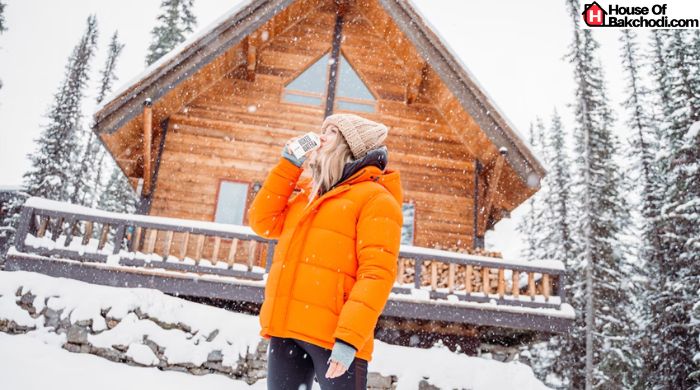How to Improve Your Restless Sleep During the Cold Season?
Sleep experts state that the cold season could create a conflict between the human body’s circadian rhythms and society’s expectations because time change doesn’t actually bring an extra hour of sleep but shorter days that negatively impact the human body. Nathaniel Watson, MD, Co-Director of the HMC Sleep Disorders Center at the University of Washington, finds time change as a society-imposed jet lag that makes people want to go to bed earlier to wake up earlier.
Fortunately, the human body is created to deal with this adjustment, and the circadian rhythms adjust to the schedule. However, it takes time for the body to deal with the conflict and adapt to the new wake-up time. The cold season is ideal for cuddling with a partner or pet and curling up inside on the couch, watching Netflix or reading a book. People want to believe that the nesting tendency will help them sleep like babies during the winter, but in fact, cold weather brings a series of sleep challenges for most people.
Here are some recommendations for adjusting your sleeping habits for the cold season.
Page Contents
Adjust the Room Temperature
When the cold season comes, you feel tempted to reach for a heavier blanket and thicker pajamas. However, sleep specialists think a thicker comforter could hurt your sleep quality. The body temperature drops slightly as you get sleepy during the evening, but it goes up again in a couple of hours when the brain enters dreamtime. Therefore, you’ll find the sleep environment too hot if you use a thick blanket to cover yourself during the night. Overheating can have a negative impact on your sleep quality because it makes you sweat.
Adjust the room temperature to 20-22°C, which is ideal for comfortable sleep. Sleeping in a room with a too-warm temperature can keep you awake at night. On the other hand, a too-cold sleep environment will make it difficult to fall asleep and wake you up at night. 20-22°C is best because is the temperature your body reaches during sleep.
Take Control of the Light
Cloudy sky in the winter makes your life duller because if you don’t get enough sunlight, you feel more lethargic and find it more exhausting to complete daily tasks. When the evening comes, your body doesn’t feel ready to go to bed because it’s not tired enough. To prevent this, you should try to get as much sunshine as possible. Take short walks during the day to soak in the little sunlight that breaks through the clouds.
Sleep specialists state that one of the best things you can do to improve your sleep quality during the cold season is to manipulate the light in your house. Light is crucial in how you time your life because it impacts your circadian rhythms. Unfortunately, during the winter, you get less natural light and are more subjected to tiredness because your body gets less melatonin (the hormone that regulates your sleep patterns).
You might feel sleepy earlier once the fall comes – but going to bed too early can mess up your sleep cycles and make you wake up early in the morning. Use artificial light to prevent sleepiness because it mimics the sun’s full light spectrum. You could switch from an alarm clock to a light-powered clock that wakes you up gradually. It’s more helpful for your body because it makes you realize that it’s daytime, even if it’s still dark outside. Light therapy lamps are ideal if you live in a dark area because it prevents you from suffering from seasonal affective disorder.
Exercise
Physical activity can improve your quality of sleep and overall health, so make sure not to skip your workouts during the chill months of the winter. We know that you find it more difficult to motivate yourself to exercise this time of the year because you feel more sluggish and tired, but it’s crucial to stay as active as possible to prevent sleep issues. As stated before, your body doesn’t burn all its energy during the day, which impacts your sleep quantity and quality, so you need to take some steps to tire your body and get it into sleep mode. Try to walk outdoors as much as possible to bask in the sun rays and burn off the excess energy. Another way to stay active is to sign up for a gym membership and join fitness group classes or train with a personal fitness instructor. Keeping active during the cold season is essential for your mental and physical health.
Adjust Your Sleeping Environment
Your sleep clothing for summer and winter should be different. During the cold season, you might want to wear bamboo pajamas for women as they’re made from an ultra-soft and moisture-wicking fabric that makes sleeping more comfortable and allows the body to maintain a proper temperature overnight. Just because it’s cold outside doesn’t mean you should wear multiple layers because it’ll prevent your body from relaxing and loosening up at night.
It would help if you also switched for natural fibre sheets and a comforter to provide warmth and allow your body to adjust to colder temperatures. Trade your cotton sheets for flannel ones because they feel warmer on the body. It’s also recommended to launder the sheets and pillowcases frequently in the winter to keep allergens and bacteria at bay. When the heat is turned on, there are higher chances for unwanted germs to grow in your bed.
Consider Taking Supplements
Supplements can have a place in helping you improve your overall health and regulate your sleep patterns. However, it would help if you weren’t relying on pills to fall asleep. Magnesium is a great supplement to take during the autumn and winter months because it converts amino acids into melatonin, which is essential for sleep. You can also take melatonin to jumpstart the natural production of melatonin. However, it’s best to use it only occasionally and only after discussing it with your doctor.




